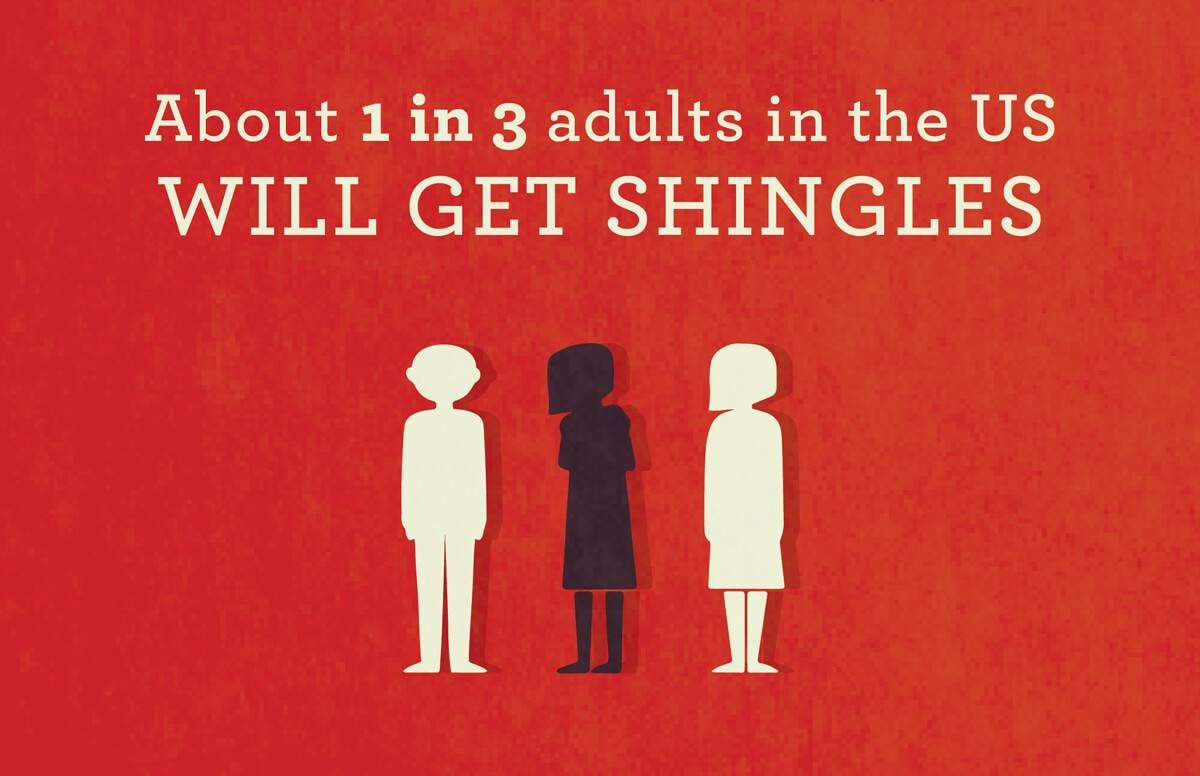5 Things Every Adult Should Know About Shingles
60 or older? Get the shingles vaccine

(Editor's note: This content is provided by the National Foundation for Infectious Diseases, a Next Avenue sponsor.)
As a healthcare professional, I am often asked if I would recommend shingles vaccination for my family. Both my wife and I have received the shingles vaccine because beyond knowing the science, I have seen friends and patients affected by this often-serious disease and its painful consequences. Additionally, my wife has become a passionate advocate for the shingles vaccine to her friends who are 60 years of age and older. Despite her enthusiasm she is still frustrated that she has not been persuasive enough — several friends "just did not get around to it" and then came down with serious cases of shingles. One friend developed an eye infection, and another friend developed disabling post-shingles pain.
Shingles (herpes zoster) is a viral infection caused by the varicella zoster virus — the same virus that causes chickenpox. Once infected the virus stays inactive in the body for life and can reactivate years, or even decades, later. Shingles causes a painful and often severe rash, may cause nerve pain and may even affect the eyes, leading to vision loss.
In the United States, shingles affects nearly a million people each year, and one out of every three people will develop shingles in their lifetime. If you've had chickenpox, you are at risk for shingles. Your risk of getting shingles increases as you age, especially after age 50. The most common complication of shingles is postherpatic neuralgia (PHN), which is severe pain in the areas where the shingles rash occurred. About one out of five people with shingles will get PHN, and the risk of PHN increases with age.
While shingles is associated with normal aging, anything that weakens the immune system — including certain medications, cancers or infections — can trigger the virus. Shingles can also occur in healthy younger persons, even children. Shingles cannot be passed from one person to another.
Here are five important things you should know about shingles:
1. How can I help protect myself against shingles? Although there are safe and effective licensed vaccines to help prevent shingles, the vaccination rate for shingles among adults 60 years of age and older in the U.S. is only around 30 percent, according to the Centers for Disease Control (CDC). Vaccination rates are even lower in certain minority populations. The best way to help prevent shingles is to get vaccinated.
2. Who should get the shingles vaccine? Currently the CDC recommends the vaccine for all adults age 60 years and older who are not immunocompromised, although the age recommendation is expected to change to include adults age 50 years and older in the coming months based on revised recommendations by the CDC Advisory Committee on Immunization Practices.
3. What if I've already had shingles? Should I still get vaccinated? Even if you have had shingles, the shingles vaccine is still recommended to help prevent future occurrences of the disease. There is no specific length of time you must wait after having shingles before receiving the vaccine, but generally you should make sure the shingles rash has disappeared before getting vaccinated. Talk to a healthcare professional to determine the best time to get vaccinated.
4. How much does the shingles vaccine cost? If you are 50-64 years of age, your medical insurance may cover the shingles vaccine. Check with your insurance company to be sure. For adults age 65 years and older who have Medicare and elected to receive Medicare Part D, the vaccine is covered. Generally, Medicare prescription drug plans (Part D) cover all commercially-available vaccines recommended to prevent illness (including the shingles vaccine). Contact your Medicare drug plan representative to ask about coverage.
5. I heard that there is a new shingles vaccine. Should I wait until the new vaccine is available to get vaccinated? As a healthcare professional my goal is to ensure that all patients are protected against serious vaccine-preventable diseases including shingles. Vaccination is the best way to prevent shingles. To that end, adults should talk to a healthcare professional about their individual risks to determine whether they should get the currently available shingles vaccine now followed by the new vaccine when it becomes available in 2018.
Improving Adult Vaccination Rates is Critical to Protecting Older Adults
Despite the success of U.S. childhood vaccines and high immunization rates, the same cannot be said for adult vaccination rates, unfortunately. As a result more than 50,000 adults in the U.S. die each year, and thousands more suffer serious health problems, costing billions of dollars, all from diseases that could be prevented by vaccines. As the U.S. population ages at an unprecedented rate, improving rates of adult vaccination is a national imperative.
This fall, be sure to ask a healthcare professional about recommended vaccines, including shingles and flu. To learn more about shingles, visit www.nfid.org/shingles.
Vaccination is the best tool we have to prevent many debilitating and even deadly diseases and to help ensure a healthy and active lifestyle as you age. Be sure you take the time to "just get around to it" and get vaccinated to protect yourself and your loved ones.

